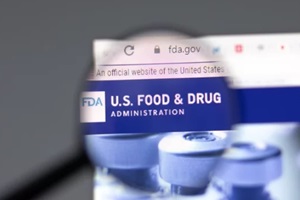 The Food and Drug Administration (FDA) recently approved a request from Florida to import medications from Canada at significantly lower prices than in the United States.
The Food and Drug Administration (FDA) recently approved a request from Florida to import medications from Canada at significantly lower prices than in the United States.
The approval marks a highly-anticipated shift in the pharmaceutical industry as it is the first time a state has been authorized to purchase lower-cost drugs in bulk from abroad.
Learn more about this FDA approval and how it could impact employee benefits.
Details of FDA Approval for Florida
In a letter to Florida dated Feb. 5, 2024, the FDA outlines the key requirements for Florida’s Section 804 Importation Program (SIP).
After decades of obstacles from American drug manufacturers to obtain low-cost drugs from other countries, states can now buy from Canadian wholesalers in bulk for their government clinics, Medicaid programs, and prisons.
Significance of Policy Shift in Allowing Mass Drug Imports
Under this new money-saving strategy, the FDA may authorize SIP proposals from States or Indian tribes to import certain medications from Canada if the purchase will significantly reduce costs for American consumers without imposing safety or public health risks.
Florida’s approval paves the way for other states to request permission to import prescription drugs from Canada.
Estimated Savings for Florida’s Drug Program
For many decades, soaring drug costs have placed a financial strain on Americans, often forcing them to choose between prescribed medications and other necessities, such as groceries, utilities, or rent.
According to a 2022 case document, Florida estimates it could save $150 million in the program’s first year. The state plans to import medications that treat AIDS, HIV, hepatitis C, diabetes, and psychiatric illnesses.
Public Support and Political Implications
Florida’s approval signifies a victory for Florida Governor Ron DeSantis, a Republican presidential candidate, and President Joe Biden. Both DeSantis and Biden have made it a priority to lower prescription drug costs in the United States.
In 2020, the Trump administration released rules that allowed states to apply for drug importation.
 Florida was the first state to apply. The policy gained momentum in 2021 when President Biden directed federal agencies to begin working with states to develop these importation plans.
Florida was the first state to apply. The policy gained momentum in 2021 when President Biden directed federal agencies to begin working with states to develop these importation plans.
However, a lack of action by the FDA forced DeSantis to sue the agency for their “reckless delay” in approving the state’s request.
U.S. Public Has Shown Support for Drug Importation
The idea behind drug importation has been seen in a positive light by consumers throughout the United States.
Many residents do not understand why they are forced to pay high prices for the same prescription drugs that are available at a fraction of the cost in other countries.
Influence of the 2024 Presidential Election
The 2024 presidential election is nearing, causing many candidates to support reduced drug prices. President Biden is promoting the Inflation Reduction Act, which enables Medicare to negotiate drug prices directly with drug manufacturers.
DeSantis, who challenged Donald Trump for the Republican nomination, has been promoting his importation plan.
International Response and Canadian Concerns
Despite approval from the FDA to import drugs from Canada, the Canadian government has concerns about these exports.
Since the Trump administration first announced that states could submit importation proposals, the Canadian government issued new rules to prevent drug wholesalers and manufacturers from exporting certain medications deemed in short supply.
Reaction from Canadian Health Officials and Government
With the Canadian government concerned about its drug shortages, some experts have spoken out about whether importation will lower drug prices in the United States due to the relatively small size of the Canadian drug market.
Canadian health officials are concerned that distributing Canadian drugs outside of the country could cause or worsen a shortage, resulting in the banning of the distribution of certain types of drugs outside the country.
With Canada safeguarding certain prescription medications, states such as Florida may encounter barriers in their attempt to keep drug costs low.
Potential Further Restrictions on Drug Exports from Canada
 Further drug export restrictions from Canada may arise soon as Canada continues to take preventative actions to protect the drug supply and to ensure that their citizens have the prescription drugs they need.
Further drug export restrictions from Canada may arise soon as Canada continues to take preventative actions to protect the drug supply and to ensure that their citizens have the prescription drugs they need.
This means that mass drug imports to the U.S. from Canada may not be the solution that Florida and other states are seeking to help resolve the issue of soaring drug prices in the U.S.
Consult with New City to See What Low-Cost Options are Available to You
While the FDA issuing its first approval for mass drug imports to the U.S. from Canada is a positive step toward reducing drug costs, many obstacles remain to overcome.
In the meantime, employers can lower their health plans to benefit employee health and achieve cost savings. Reach out to New City Insurance to explore low-cost options.
